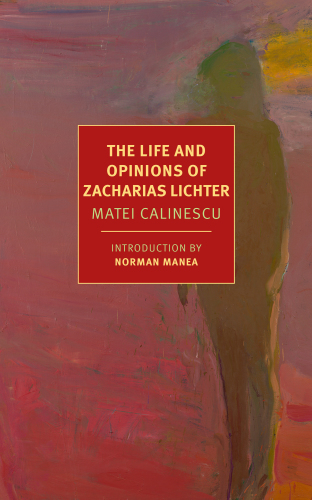
The Life and Opinions of Zacharias Lichter
کتاب های مرتبط
- اطلاعات
- نقد و بررسی
- دیدگاه کاربران
نقد و بررسی

January 15, 2018
A once-subversive, picaresque life of an imagined philosopher who speaks in torrents and trades in absurdity.Given history, it's unfortunate that Calinescu, a Romanian novelist who published this book in 1969 and then spent his later years as an expatriate in Indiana, should have decided that his Romanian-German-Jewish protagonist, Zacharias Lichter, be "so ludicrously ugly he produces a strong impression on even the indifferent observer"--and with a "peerless Semitic nose" to boot. Lichter may be hideous and ill-dressed (to convey, Calinescu ventures, the Platonic ideal of poverty), but he is also exuberant and irrepressible, given to waving his hands around wildly while putting the finer points on arguments that are blunt-force weapons. Where Kierkegaard spoke of the elevated triad of the aesthetic, ethical, and religious spheres, for instance, Lichter intones that the proper hierarchy for our day is "circus--madness--perplexity." That fits because, he adds, all people are clowns, if delayed in their recognition of their essential clownness; moreover, he later holds, "words no longer mean anything," they "are mere vehicles of a reality beyond signifiers." Lichter would be as goofy as Vonnegut's Bokonon, a kind of pastiche iek, if Calinescu did not invest in his philosophy a commitment to human freedom, and for this reason it's easy to see why the book should have been a favorite of Romanian dissidents on its publication in 1969, a dozen or so years after Calinescu began writing the tales of his antiheroical philosopher. Sometimes Calinescu/Lichter is wonderfully prescient, prefiguring Susan Sontag when he writes that in our era "a kind of a debased religion of health, of 'normality, ' has been created, obsessed with the problem of illness." Mostly, though, the free-wheeling Lichter, who sometimes delivers his pronouncements in indifferent poetry, lives up to what an acolyte and apprentice of his calls "a pedagogy of beguilement."For students of Iron Curtain-era Eastern European letters, a lost treasure.
COPYRIGHT(2018) Kirkus Reviews, ALL RIGHTS RESERVED.

May 7, 2018
Zacharias Lichter is a vagrant and philosopher with “the fiery personality of one of the last descendants of the ancient race of great prophets” whose tirades and mad beliefs are recorded in C
linescu’s Romanian classic, which he began writing in the late 1950s and published in 1969. An iconoclastic treatment of man’s capacity for love and existence itself, C
linescu’s book narrowly escaped the Communist censors when first published . Now in English for the first time, it’s stunning that Lichter’s freewheeling discourse on the necessity of revolution, the transience of mortal law, and the importance of sympathy for the worker who constantly sells his powers “at a loss” was allowed to see print in the restrictive climes of midcentury Romania. In a kind of rejoinder to Nietzsche and Rilke’s Notebooks of Malte Laurids Brigge, Lichter, the self-described “prophet-clown,” wanders the streets with his only friend, the alcoholic Leopold Nacht. He composes poems, begs for alms, and challenges the prejudices of so-called learned men, whether they be doctors or mathematicians. He defends the lot of thieves and wanderers with madcap takes on Dante, the Greeks, and even God himself. This book-length panegyric from a raving genius is a strange and uncompromised response to modernity run amok.

























دیدگاه کاربران